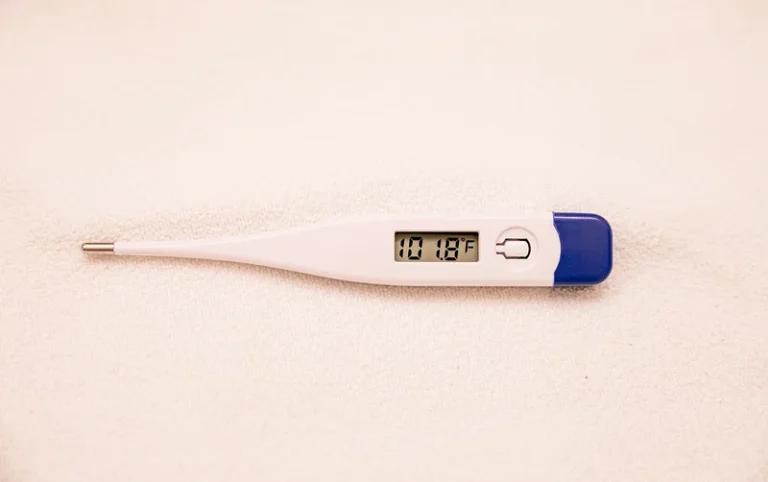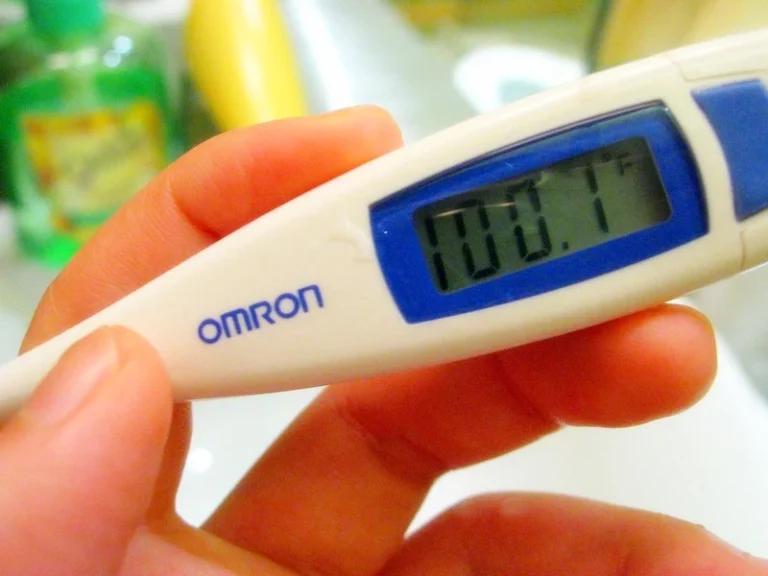
Fevers are a common occurrence, especially among children, and can be a source of concern for many parents and individuals. Understanding the typical duration of fevers and the factors that influence their resolution is crucial for providing appropriate care and seeking timely medical attention. In this article, we will delve into fever duration, exploring the various factors that contribute to its course and offer guidance on when to seek medical intervention.
Defining fever
A fever is generally defined as a temporary high temperature, often a sign that the immune system is actively responding to an infection or other underlying health condition. An oral temperature of 98.6°F (37°C) or higher, is considered a high fever. However, it’s important to note that normal body temperature can vary slightly from individual to individual and may fluctuate throughout the day. Fever is often accompanied by other symptoms like cough, sore throat, body aches, fatigue, and a runny nose.
The fever spectrum: Duration and patterns
Fevers can present in a wide range of durations and patterns, depending on the cause of fever symptoms.
Short-lived fevers
Many common viral infections, such as the flu or the common cold, often result in short-lived fevers that typically resolve within 1 to 4 days. These fevers are a natural response of the body’s immune system as it works to fight off the infection.
Persistent fevers
In some cases, fevers may persist for 5 days or longer. These persistent fevers can be associated with various underlying conditions, including bacterial infections, inflammatory disorders, or, in rare cases, certain types of cancer. Prolonged fevers require closer medical attention to identify the root cause and to determine the appropriate course of treatment.
Intermittent fevers
Some individuals may experience a pattern of intermittent fevers, where the temperature fluctuates between normal and elevated levels. This pattern can indicate more complex medical conditions, such as certain infections or autoimmune disorders. Monitoring the frequency and duration of these intermittent fevers is crucial for proper diagnosis and management.
Factors influencing fever duration
The duration of a fever can be influenced by a variety of factors, including the underlying cause, the individual’s age and overall health, and the effectiveness of any interventions or treatments.
Cause of the fever
The primary driver of a fever’s duration is the underlying cause. Viral infections, such as the flu or the common cold, typically result in shorter-lived fevers, while bacterial infections or other inflammatory conditions may lead to more persistent fevers. Understanding the root cause is essential for determining the expected duration and appropriate course of action.
Age and health status
Infants and young children, especially those under 3 months of age, are at a higher risk of experiencing more severe or prolonged fevers. This is due to their developing immune systems and the potential for serious underlying infections. Conversely, older individuals or those with compromised immune systems may also be more susceptible to prolonged fevers.
Treatment and interventions
The use of fever-reducing over-the-counter medications, such as paracetamol/acetaminophen or ibuprofen, can help reduce the fever symptoms and potentially shorten its duration. However, it’s important to note that these medications do not address the underlying cause of the fever and should be used carefully, following the guidance of healthcare professionals.
Managing fevers
Effective management of fevers involves a combination of monitoring, symptom relief, and seeking medical attention when necessary.
Monitoring body temperature
Regularly monitoring body temperature is crucial for tracking the progression of a fever. Digital thermometers, which can be used orally, rectally, or under the armpit, provide the most accurate readings. It’s important to follow the manufacturer’s instructions and to consider the individual’s age and health status when interpreting the results.
Providing symptom relief
While fevers are generally not harmful, they can cause discomfort, particularly in children. Providing appropriate symptom relief, such as administering medications, ensuring adequate hydration through drinking plenty of fluids, and allowing for rest, can help the individual feel more comfortable during the fever’s course.
Seeking medical attention
In certain circumstances, it’s essential to seek medical attention for a fever. Infants under 3 months old with a temperature of 100.4°F (38°C) or higher, as well as children between 3 and 6 months old with a temperature of 102°F (38.9°C) or higher, should be evaluated by a healthcare provider. Additionally, any fever accompanied by the following symptoms, such as a rash, stiff neck, severe headache, or difficulty breathing, requires immediate medical attention.
Preventing fevers
While fevers are often an unavoidable part of the body’s natural response to infection, there are steps individuals can take to help prevent or reduce the frequency and severity of fevers.
Vaccination
Receiving recommended vaccinations, such as those for influenza and COVID-19, can significantly reduce the risk of contracting certain infectious diseases that can lead to fevers.
Practicing good hygiene
Frequent handwashing, avoiding contact with sick individuals, and covering coughs and sneezes can help minimise the transmission of infectious agents that can trigger fevers.
Maintaining a healthy lifestyle
Ensuring adequate sleep, a balanced diet and regular physical activity can help support the immune system and improve the body’s ability to fight off infections that may result in fevers.
Fevers in children
Fevers in children, especially infants and toddlers, require special attention due to their developing immune systems and the potential for more serious underlying conditions.
Febrile seizures
Children between the ages of 6 months and 5 years are at an increased risk of experiencing febrile seizures, which can be alarming for parents but are generally not harmful and do not indicate a serious underlying condition.
Fever management in children
Managing fevers in children often involves a balance of symptom relief, monitoring, and seeking medical attention when necessary. It’s crucial to follow the guidance of healthcare professionals, particularly for infants and young children, to ensure the proper care and support.
When to seek medical advice
While many fevers can be safely managed at home, there are certain situations where seeking medical advice is recommended. These include:
- Infants under 3 months old with a temperature of 100.4°F (38°C) or higher
- Children between 3 and 6 months old with a temperature of 102°F (38.9°C) or higher
- Fevers accompanied by concerning symptoms, such as a rash, severe headache, or trouble breathing
- Fevers that persist for more than 3 days
- Recurring or intermittent fevers that raise concerns
In these cases, it’s essential to consult with a healthcare provider to determine the underlying cause and receive appropriate medical care.
Conclusion
Fevers can be common, but understanding their typical duration and the factors that influence their course is crucial for providing effective care and seeking timely medical attention when necessary.
Sources
- Fever – Symptoms & causes – Mayo Clinic
- High temperature (fever) in adults – NHS
- High temperature (fever) in children – NHS
Medical Disclaimer
NowPatient has taken all reasonable steps to ensure that all material is factually accurate, complete, and current. However, the knowledge and experience of a qualified healthcare professional should always be sought after instead of using the information on this page. Before taking any drug, you should always speak to your doctor or another qualified healthcare provider.
The information provided here about medications is subject to change and is not meant to include all uses, precautions, warnings, directions, drug interactions, allergic reactions, or negative effects. The absence of warnings or other information for a particular medication does not imply that the medication or medication combination is appropriate for all patients or for all possible purposes.








